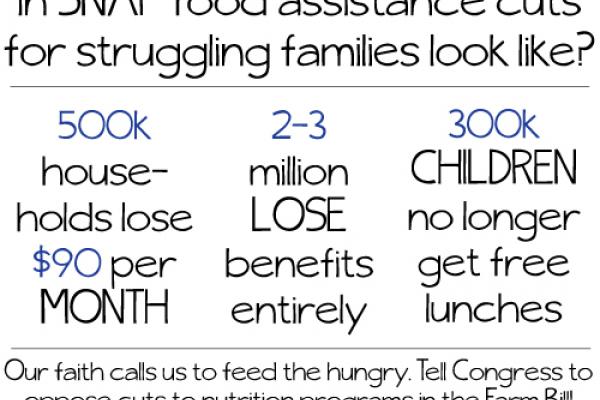Religion reporter Amy Sullivan has an interesting piece in The New Republic today on the politics surround the deep cuts to government food programs being proposed by the House Agriculture Committee.
As she notes:
"Some conservatives have argued that government shouldn’t even be in the business of feeding people—that the job should be handled by local congregations and other community organizations. Paul Ryan has sparred with Catholic bishops who oppose cuts to SNAP, quipping that 'a preferential option for the poor does not mean a preferential option for big government.'”
The article goes on to note that, while churches were the only social safety net the country had for many years, it was the Great Depression which ended this role. Quoting from an article by Alison Collis Greene:
“'The Depression crippled churches’ finances, and the economic downturn forced them to slash services when people needed help most. Religious leaders and local church members alike recognized the crisis, and many demanded that the federal government intervene.'”
Sullivan argues that we find ourselves in a situation not so different to that of the 1930s today:
"We are watching a similar situation play out now. Many religious traditions and individual churches were struggling when the recession began. The Catholic church was dealing with the fallout from the priest sex abuse scandals. It and other traditions are still embroiled in debates over homosexuality that have led to splits or caused members to leave altogether. Congregational membership levels are down in almost every religious tradition. And as a result, their resource pools have shrunk."
Yes, smarter and more effective government programs are vital when budgets are being cut across the board. But indiscriminate cuts to vital services like the Supplemental Nutrition Assistance Program (SNAP) and calls for churches to pick up the pieces are simply immoral and ultimately impossible.
The cuts being proposed by the Committee will have a devastating impact on poor Americans. It’s time to stand up for the poorest and more vulnerable. You can help. Tell Congress to oppose cuts to nutrition programs in the Farm Bill today.
Read the Full Article

